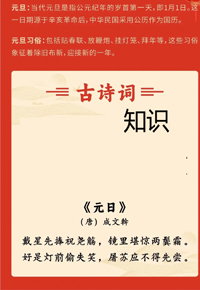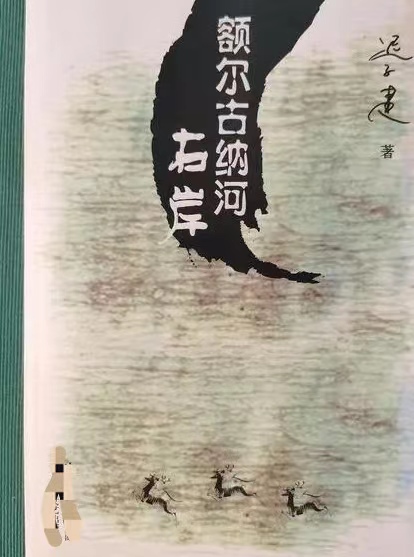They existed vaguely, frightened at their happiness. They did not notice the cholera which decimated Paris precisely during that very month. They had confided in each other as far as possible, but this had not extended much further than their names. Marius had told Cosette that he was an orphan, that his name was Marius Pontmercy, that he was a lawyer, that he lived by writing things for publishers, that his father had been a colonel, that the latter had been a hero, and that he, Marius, was on bad terms with his grandfather who was rich. He had also hinted at being a baron, but this had produced no effect on Cosette. She did not know the meaning of the word. Marius was Marius. On her side, she had confided to him that she had been brought up at the Petit-Picpus convent, that her mother, like his own, was dead, that her father's name was M. Fauchelevent, that he was very good, that he gave a great deal to the poor, but that he was poor himself, and that he denied himself everything though he denied her nothing.
Strange to say, in the sort of symphony which Marius had lived since he had been in the habit of seeing Cosette, the past, even the most recent past, had become so confused and distant to him, that what Cosette told him satisfied him completely. It did not even occur to him to tell her about the nocturnal adventure in the hovel, about Thenardier, about the burn, and about the strange attitude and singular flight of her father. Marius had momentarily forgotten all this; in the evening he did not even know that there had been a morning, what he had done,where he had breakfasted, nor who had spoken to him; he had songs in his ears which rendered him deaf to every other thought; he only existed at the hours when he saw Cosette. Then, as he was in heaven, it was quite natural that he should forget earth. Both bore languidly the indefinable burden of immaterial pleasures. Thus lived these somnambulists who are called lovers.
Alas! Who is there who has not felt all these things? Why does there come an hour when one emerges from this azure, and why does life go on afterwards?
Loving almost takes the place of thinking. Love is an ardent forgetfulness of all the rest. Then ask logic of passion if you will. There is no more absolute logical sequence in the human heart than there is a perfect geometrical figure in the celestial mechanism. For Cosette and Marius nothing existed except Marius and Cosette. The universe around them had fallen into a hole. They lived in a golden minute. There was nothing before them, nothing behind. It hardly occurred to Marius that Cosette had a father. His brain was dazzled and obliterated. Of what did these lovers talk then? We have seen, of the flowers, and the swallows, the setting sun and the rising moon, and all sorts of important things. They had told each other everything except everything. The everything of lovers is nothing. But the father, the realities, that lair, the ruffians, that adventure, to what purpose? And was he very sure that this nightmare had actually existed? They were two, and they adored each other, and beyond that there was nothing. Nothing else existed. It is probable that this vanishing of hell in our rear is inherent to the arrival of paradise. Have we beheld demons? Are there any? Have we trembled? Have we suffered? We no longer know. A rosy cloud hangs over it.
So these two beings lived in this manner, high aloft, with all that improbability which is in nature; neither at the nadir nor at the zenith, between man and seraphim, above the mire, below the ether, in the clouds; hardly flesh and blood, soul and ecstasy from head to foot; already too sublime to walk the earth, still too heavily charged with humanity to disappear in the blue, suspended like atoms which are waiting to be precipitated; apparently beyond the bounds of destiny; ignorant of that rut; yesterday, to-day, to-morrow; amazed, rapturous, floating, soaring; at times so light that they could take their flight out into the infinite; almost prepared to soar away to all eternity. They slept wide-awake, thus sweetly lulled. Oh! splendid lethargy of the real overwhelmed by the ideal.
Sometimes, beautiful as Cosette was, Marius shut his eyes in her presence. The best way to look at the soul is through closed eyes.
Marius and Cosette never asked themselves whither this was to lead them. They considered that they had already arrived. It is a strange claim on man's part to wish that love should lead to something.
他们被幸福冲昏了头脑,在稀里糊涂地过日子。那个月里,霍乱正在巴黎流行,死亡惨重,他们全不在意。他们互相倾诉衷情,尽量使对方了解自己,而这一切从来没有远离各自的身世。马吕斯告诉珂赛特,说他是孤儿,他叫马吕斯·彭眉胥,他是律师,靠替几个书店编写资料过活,他父亲当初是个上校,是个英雄,而他,马吕斯,却和他那有钱的外祖父闹翻了。他也多少谈了一下他是男爵;但是这对珂赛特一点也没发生影响。马吕斯男爵?她没有听懂。她不知道那是什么意思。马吕斯就是马吕斯。从她那方面,她向他说她是在小比克布斯修院里长大的,她的母亲,和他的一样,已经死了,她的父亲叫割风先生,还说他为人非常之好,他大量周济穷人,而他自己并没有钱,他节省自己的费用,却要保证她什么也不缺。
说也奇怪,马吕斯自从遇见了珂赛特以后,在他所过的那种交响音乐似的生活中,过去的事,甚至是过去不久的事,对他来说都已变得那样模糊遥远,以致珂赛特对他谈的一切完全可以满足他。他甚至没有想到要把那天夜晚在德纳第穷窟里发生的事,他父亲怎样烧伤自己的胳膊,他那奇怪的态度,机灵的脱险等等经过说给她听。马吕斯一时把那些全忘了,他甚至一到天黑,便想不起自己在上午干了些什么,是在什么地方吃的午饭,有谁和他说过话,他耳朵里经常有歌声,使他接触不到任何其他思想,他只是在看见珂赛特时才活过来。因此,他既是生活在天堂里,当然想不起尘世的事了。他俩昏昏沉沉地承受着这种非物质的快感的无限重压。这两个所谓情人的梦游病患者便是这样过活的。
唉!谁又没有经受过这一切考验?为什么好事总会多磨?
为什么以后生命还要延续下去?
爱几乎取代思想:爱是健忘的,它使人忘掉一切。你去同狂热的爱情谈逻辑吧。人心中的绝对逻辑联系并不多于宇宙机构中的规则几何形。对珂赛特和马吕斯来说,世上除了马吕斯和珂赛特以外,便不再有旁的什么了。他们周围的宇宙已落到一个洞里去了。他们生活在黄金的片刻里。前面无所有,后面也无所有。马吕斯几乎没有想过珂赛特有个父亲。在他的脑子里,只是一片耀眼的彩光,把什么都遮没了。这一对情人谈了些什么呢?我们已经知道,谈花、燕子、落山的太阳、初升的月亮,所有这一类重要的东西。他们什么都谈到了,什么也没有谈到。情人的一切,是一切皆空。那个父亲、那些真人真事、那个穷窟,那些绑匪、那种惊险事,这有什么可谈的?那种恶梦似情景,是真有过的吗?他们是两个人,他们彼此相爱,这已是一切了。其他全是不存在的。也许是这样:地狱在我们背后的陷落原是和进入天堂连在一起的。谁看见过魔鬼呀?真有魔鬼吗?真有人发过抖吗?确有人受过苦吗?什么全不知道了。在那上面,只有一朵玫瑰色的彩云。
那两个人便是这样过活的,高洁绝伦,世上少有,他们既不在天底点,也不在天顶点,是在人与高级天使之间,在污泥之上,清霄之下,云雾之中;几乎没有了骨和肉,从头到脚全是灵魂和憧憬;着地已感固体太少,升空又嫌人味太重,仿佛是在原子将落未落的悬浮状态中;看来已超越于生死之外,不知有昨日、今日、明日这样乏味的轮转,陶陶然,醺醺然,飘飘然,有时,轻盈得可以一举升入太虚,几乎能够一去不复返。
他们便这样睁着眼睛沉睡在温柔乡中。呵,现实被幻想麻醉了的绝妙昏睡症!
有时,尽管珂赛特是那样美,马吕斯却在她跟前闭上了眼睛。闭眼是观望灵魂的最好方法。
马吕斯和珂赛特都不曾想过这样将把他们引向什么地方,他们认为这便是他们最后归宿了。想要爱情把人导向某处,那是人们的一种奇怪的奢望。







